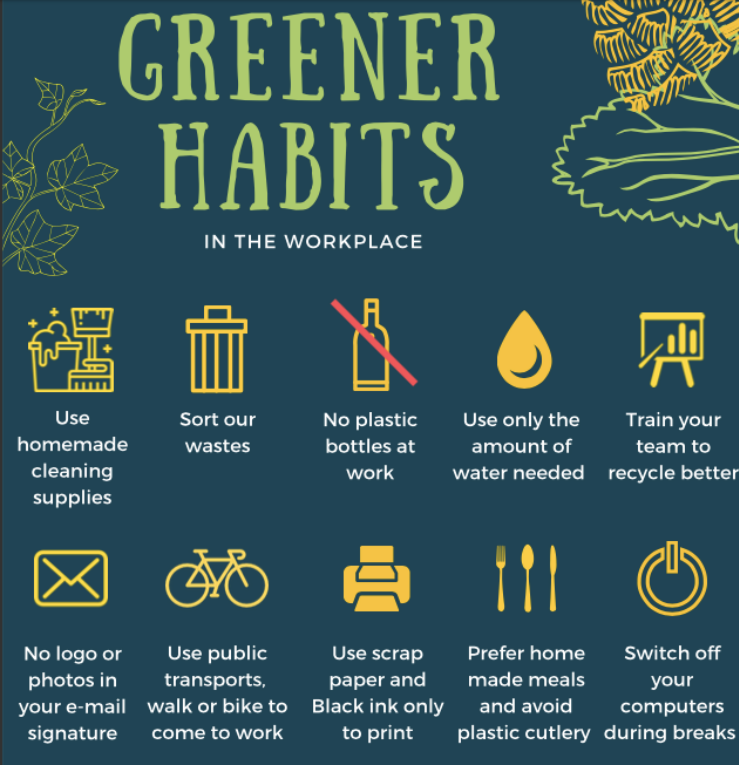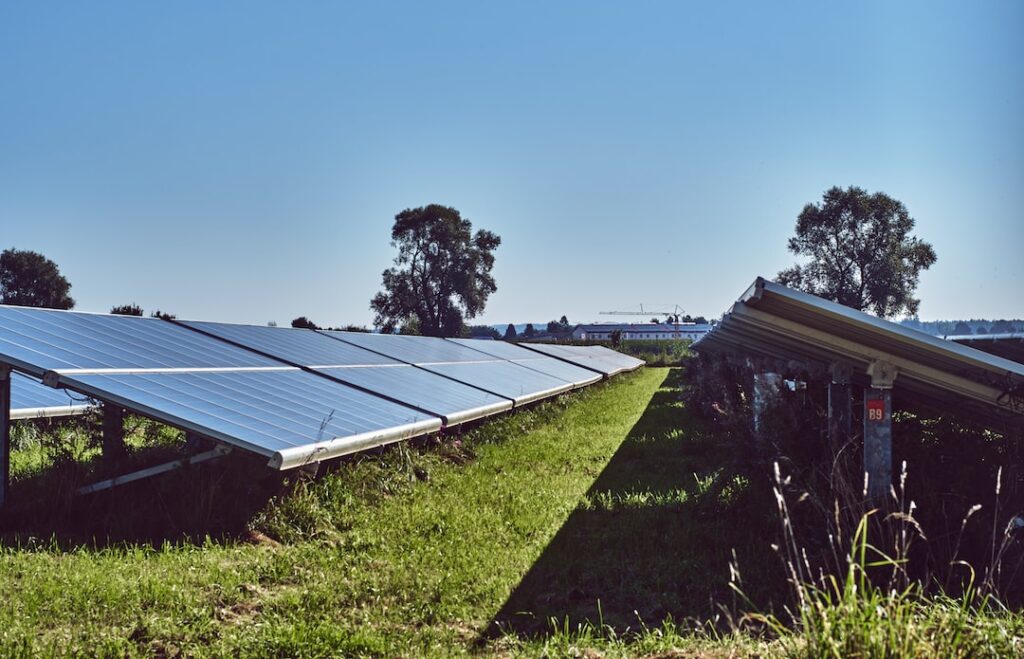As businesses grow, their impact on the environment grows as well. Many companies are beginning to recognize that they have a responsibility to make sure their operations do not hurt the environment. But how can a business be environmentally sustainable?
Can a business really be completely green? Can it truly reduce its environmental footprint and still remain profitable?
The answer is yes! There are many ways for businesses of all sizes to become more eco-friendly, including:
- Reducing waste.
- Conserving energy and water resources.
- Promoting sustainable transportation options.
- Supporting local communities and economies.
- Educating employees about sustainability practices.
If you’re wondering how can a business be environmentally sustainable, these are just some of the ways to do it. With these efforts in place, any organization can take steps towards becoming environmentally sustainable — proving once again that being green isn’t just good for our planet but good for business too!
Table of Contents
How Can a Business Be Environmentally Sustainable?
Businesses can reduce their environmental impact by implementing strategies to reduce waste. Reusing and recycling materials is an effective way to conserve resources and minimize the amount of waste a business produces.
By investing in sustainable packaging solutions, businesses can ensure that any packaging they use is made from recycled or recyclable materials.
Additionally, businesses should consider implementing zero-waste policies to help them achieve their sustainability goals. This could include setting targets for reducing the amount of waste produced or providing employees with incentives for reducing their own personal consumption levels.
Businesses should look into ways they can reuse items such as office supplies, furniture, electronics, and other equipment instead of buying new products every time something needs replacing.
Companies should prioritize recycling paper, plastic bottles, aluminum cans, and cardboard boxes instead of throwing them away.
Managers should also encourage employees to bring packed lunches in reusable containers while discouraging the use of disposable products such as cups and plates in break rooms.
In the retail sector, offering rewards points to customers for bringing reusable bags when shopping may also help motivate them to adopt eco-friendly habits.
Investing in sustainable packaging solutions is a great way for businesses to reduce their environmental impact while still meeting customer demands effectively.
Sustainable packaging options typically involve using recycled material and biodegradable components which are designed to decompose quickly after disposal without releasing harmful chemicals into the environment. These alternatives are much better than traditional single-use plastic bags which end up polluting our oceans and landfills.
Conserve Energy and Water Resources
How can a business be environmentally sustainable? One of the best ways is to conserve energy and water resources.
Installing renewable energy sources such as solar panels, wind turbines, or geothermal systems can significantly reduce a business’s reliance on fossil fuels.
Utilizing smart energy management technology helps businesses track their energy usage so that they can better understand how much electricity they are consuming at any given moment and identify opportunities for improvement if needed.
Smart meters measure electricity usage in real-time so that businesses have access to accurate data about when peak demand times occur throughout the day. This allows them to adjust accordingly by turning off certain appliances during those times or scheduling tasks differently if possible. This type of monitoring also helps detect any issues with equipment performance before it becomes a major problem that requires costly repairs down the line.
Implementing water conservation strategies is an important step towards creating a sustainable business environment as water scarcity is becoming an increasingly pressing issue worldwide due to climate change.
Low-flow fixtures such as showerheads, toilets, and faucets allow businesses to significantly reduce their overall water consumption without sacrificing comfort levels.
Rainwater harvesting systems collect rainwater runoff from roofs into tanks where it can then be reused for irrigation purposes instead of wasting it away in sewers.
Greywater reuse systems filter wastewater from sinks and showers so it can be reused instead of going down the drain.
Replacing power sources with renewable energy is also becoming increasingly popular among businesses due to long-term cost savings.
Solar panels are relatively easy to install and maintain, making them an attractive option if you are looking for ways to reduce your company’s carbon footprint while saving money on utility bills.
Wind turbines may require more upfront investment but offer greater returns over time with minimal maintenance requirements.
Geothermal systems use natural heat from the ground which can be used for heating and cooling buildings efficiently without relying on fossil fuels like oil or gas.
All these measures not only help save precious resources but also cut utility costs for a company.
Promote Sustainable Transportation Options
How can a business be environmentally sustainable?
Businesses can play an important role in creating a more sustainable environment by promoting sustainable transportation options.
Carpooling and public transportation are two of the most effective ways to reduce emissions and conserve energy. Encouraging employees to carpool or take public transit can help businesses save money on fuel costs while also reducing their carbon footprint.
Companies should also consider providing bicycle parking and shower facilities for employees who choose to bike to work, as this will make it easier for them to do so.
Additionally, investing in electric vehicles for your business fleet is a great way to reduce your environmental impact while saving money on fuel costs.
Providing incentives such as discounts on bus passes or free access to bike-sharing programs can encourage employees to opt for more sustainable forms of transportation instead of driving alone.
Companies should also look into offering telecommuting options whenever possible, as this eliminates the need for transportation altogether and reduces traffic congestion in cities during rush hour periods.
Finally, businesses should strive towards making all their delivery services carbon-neutral by using electric vehicles or bicycles.
Support Local Communities and Economies
By sourcing supplies locally, participating in community projects, and investing in local businesses that support sustainability initiatives, businesses can help build relationships with the local community while also promoting economic growth in the area.
Sourcing supplies locally not only reduces transportation costs but also creates jobs within the community. Businesses should look for ways to source materials from nearby suppliers or manufacturers when possible as this will have a positive impact on both the environment and the local economy.
Participating in community projects is another great way for businesses to get involved with their local area. This could include sponsoring events such as festivals or fundraisers, donating time or resources to charities, or even simply volunteering at these types of activities. Doing so not only shows customers that your business cares about its surroundings but also helps foster goodwill between your company and those living near you.
Finally, investing in local businesses that support sustainability initiatives is an effective way of helping promote eco-friendly practices while boosting economic activity within your region.

(Source)
Educate Employees on Sustainability Practices
Creating an internal sustainability program is a great way for businesses to educate their employees on sustainable practices. This can include creating educational materials, hosting workshops and seminars, and providing resources that employees can use to learn more about the importance of sustainability.
Additionally, having a dedicated team in place to promote eco-friendly initiatives within the organization will help ensure that everyone is on board.
Offering training opportunities on sustainable practices is another important step for businesses looking to create a culture of sustainability within their organization. By offering classes or workshops that cover topics such as energy conservation, water usage reduction, waste management strategies, and other green initiatives, businesses can empower their employees with green knowledge.
Finally, developing incentives for employees who adopt eco-friendly habits is another effective way of encouraging sustainability in the workplace. Examples of incentives could include discounts, rewards points, and recognition awards. Incentives are not only beneficial from an environmental standpoint but also serve as motivation for employees who want to do their part in helping create a greener future.
Conclusion
How can a business be environmentally sustainable? By reducing waste, conserving resources, promoting sustainable transportation options, supporting local communities, and educating employees on sustainability practices, businesses can make positive changes to the environment.
Taking these steps will help ensure that our planet is preserved for future generations so that they too can enjoy its beauty and resources. With the right commitment from businesses today, we can create an environmentally sustainable world tomorrow.





